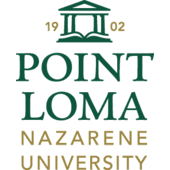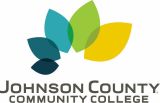
What can you do with a nursing degree?
From physician offices to emergency rooms, rehabilitation facilities to outpatient surgery, nursing has a wide variety of job opportunities available. Whether your passion lies in pediatric care or gerontology or anywhere in between, a nursing career is an ideal opportunity for those seeking to make an immediate impact in a high-paying career with an abundance of job opportunities in every corner of the country.Filters
Search and select multiple degree level.
Search and select multiple area of focus.
Religious Affiliation
Is a nursing degree worth it?
A nursing degree is an excellent choice for those students seeking an altruistic career with amazing pay. With so many nursing specialties, the job possibilities are endless! Nursing specialties include:- Clinical Nurse
- Neonatal Nurse
- Critical Care Nurse
- Dialysis Nurse
- Psychiatric Nurse
- Trauma Nurse
- Oncology Nurse
- Travel Nurse
- Pediatric Nurse
- Geriatric Nurse
- Public Health Nurse
GI Bill®-Approved Nursing Programs
Looking for an exceptional nursing program? Check out these great options at our partner schools:Samuel Merritt University
Offers various undergraduate, graduate, doctoral, and nursing certificate programs at three campuses in Northern California and online. The Accelerated BSN program has students earning their BSN in just one year (3 semesters). Samuel Merritt University has GI Bill-approved programs, is a MyCAA-approved school, and is approved for Tuition Assistance. Samuel Merritt University proudly participates in the Yellow Ribbon program.
Allan Hancock College
Offers various degrees and certificates, including a Certificate in Licensed Vocational Nursing, an Associate in Science LVN to RN program, and an Associate in Science for Licensed Vocational Nursing. Allan Hancock College has GI Bill-approved programs, offers credit for military experience, and awards credit for both the CLEP and DSST exams. Allan Hancock College is a MyCAA-approved school and is approved for Tuition Assistance.
Scottsdale Community College
Offers an Associate in Applied Science (AAS) in Nursing. This program requires a minimum of 62 credit hours, and Nursing Program graduates are eligible to apply for the national exam for the registered nurse license. Scottsdale Community College has GI Bill-approved programs, offers credit for military experience, and awards credit for the CLEP and DSST exams. Scottsdale Community College is a MyCAA-approved school and is approved for Tuition Assistance.
Lakeland Community College
Offers an Associate in Applied Science in Nursing, a traditional program, and an LPN to RN program. Lakeland Community College has GI Bill-approved programs, offers credit for military experience, and awards credit for both the CLEP and DSST exams. Scottsdale Community College is a MyCAA-approved school and is approved for Tuition Assistance.
Southern New Hampshire University
Offers a wide variety of degrees and certificates in nursing, including online programs for BSN, MSN, and accelerated programs. SNHU has GI Bill®-approved programs, offers credit for military experience, and awards credit for both the CLEP and DSST exams. SNHU is a MyCAA-approved school, is approved for Tuition Assistance, and proudly participates in the Yellow Ribbon program.
Tiffin University
Offers a Dual Degree program where students earn a B.S. in Applied Health Sciences and a B.S. in Nursing in just 8 semesters. Tiffin University has GI Bill-approved programs, offers credit for military experience, and awards credit for the CLEP exam. Tiffin University is a MyCAA-approved school, is approved for Tuition Assistance, and Tiffin University proudly participates in the Yellow Ribbon program.














